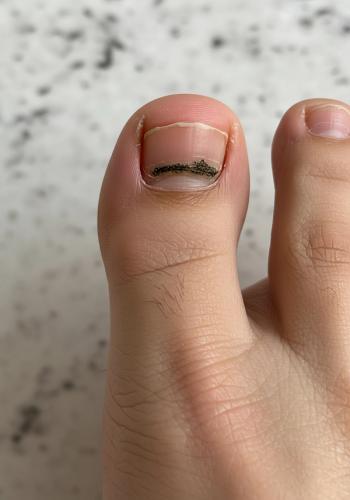
Skin Cancer Detection Apps Shown Vulnerable to Camera Sticker Hacks, Study Finds
AI apps that can detect skin cancer can be manipulated and potentially miss cases of melanoma, a serious skin cancer.
Mobile apps that use AI to spot skin cancer can be fooled by something as simple as a transparent sticker on the camera, a new study shows, raising new concerns about patient safety and the reliability of these tools beyond their digital performance.
The
The team focused on three apps that use deep neural networks, which are complex AI systems that analyze images for signs of cancer. Their aim was to test whether a physical camera-based attack, rather than a digital hack or access to the app’s code, could influence results in real-world settings.
“Skin cancer is one of the most prevalent malignant tumors, and early detection is crucial for patient prognosis, leading to the development of mobile applications as screening tools,” the authors wrote. Although deep neural networks “have demonstrated remarkable capabilities,” they also “are known to be vulnerable to adversarial attacks, where carefully crafted perturbations can manipulate model predictions.”
For the study, the researchers trained AI models using a publicly available dataset of 10,000 skin lesion images. To simulate an attack, they then created transparent stickers with patterns of small dots, barely visible to the naked eye, and attached these stickers to mobile device cameras running three popular skin cancer apps.
The results showed that for images of melanoma, which is the deadliest form of skin cancer, the attack success rates reached 50% to 80% across all apps. These attacks worked without visible clues to the user and persisted as long as the sticker was attached. The vulnerability was most pronounced for melanoma images, while images of benign moles were less affected.
“Our results show that these attacks successfully manipulate application predictions, particularly for melanoma images,” the authors wrote.
The study warns that “manipulation could affect diagnostic processes,” potentially leading to missed cancers or unnecessary medical follow-ups. The attack also requires no technical skill and is hard to detect, as transparent stickers are commonly used as protective films on phone cameras.
“These vulnerabilities could be exploited for various malicious purposes,” the authors noted, from insurance fraud and competitive sabotage to simple personal misuse. False negatives could delay diagnosis, while false positives could create patient anxiety and increase unnecessary consultations.
According to the American Cancer Society, more than 100,000 new melanomas will be
Mobile apps that use AI to diagnose cancers have been suggested as one way to expand access to care for people who live in areas with few specialists or have difficulty securing an appointment, even if some doctors worry about
The findings of this new study “demonstrates the importance of security evaluation in deploying such applications in clinical settings,” the authors wrote.
Newsletter
Get the latest industry news, event updates, and more from Managed healthcare Executive.























